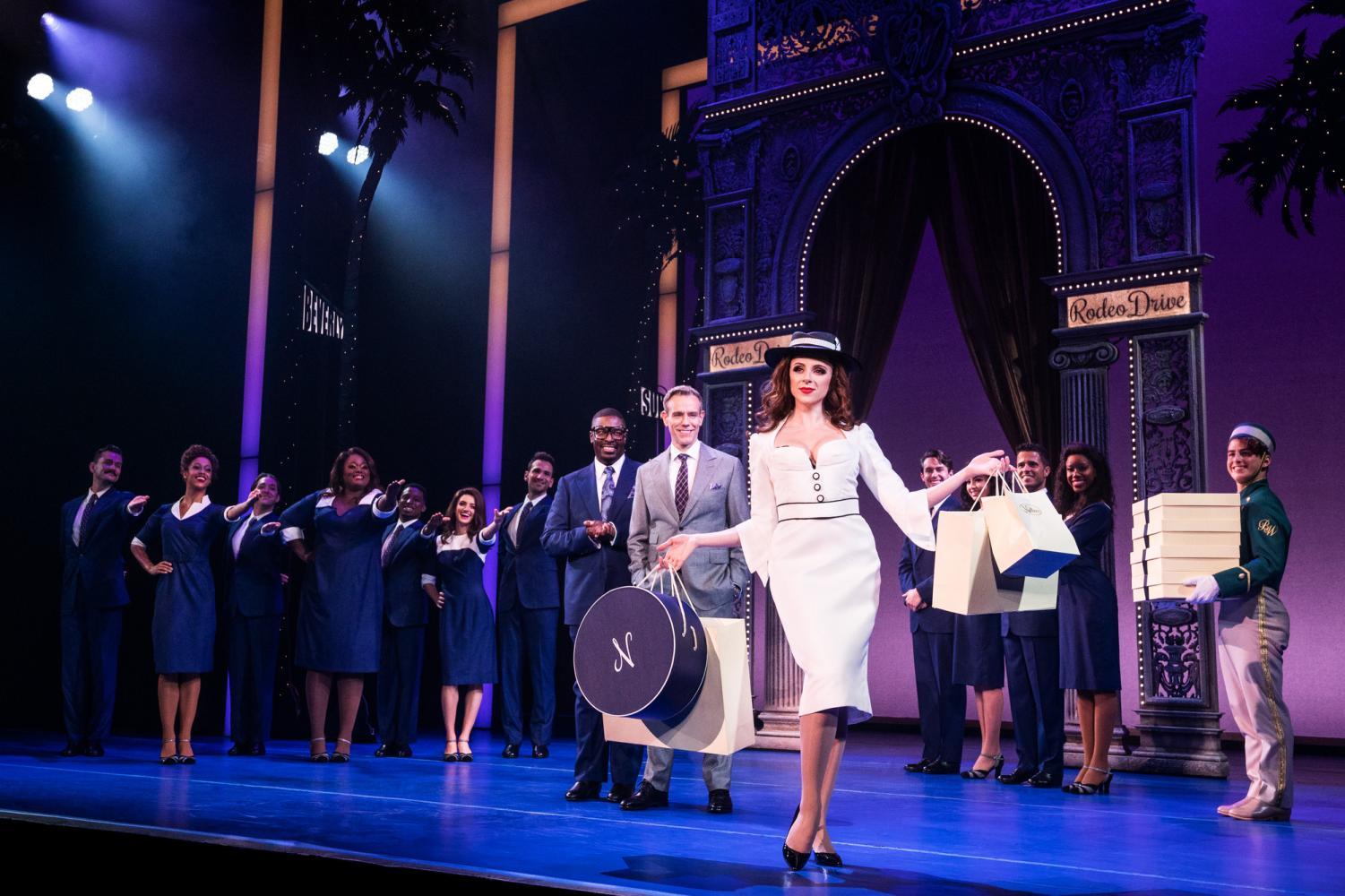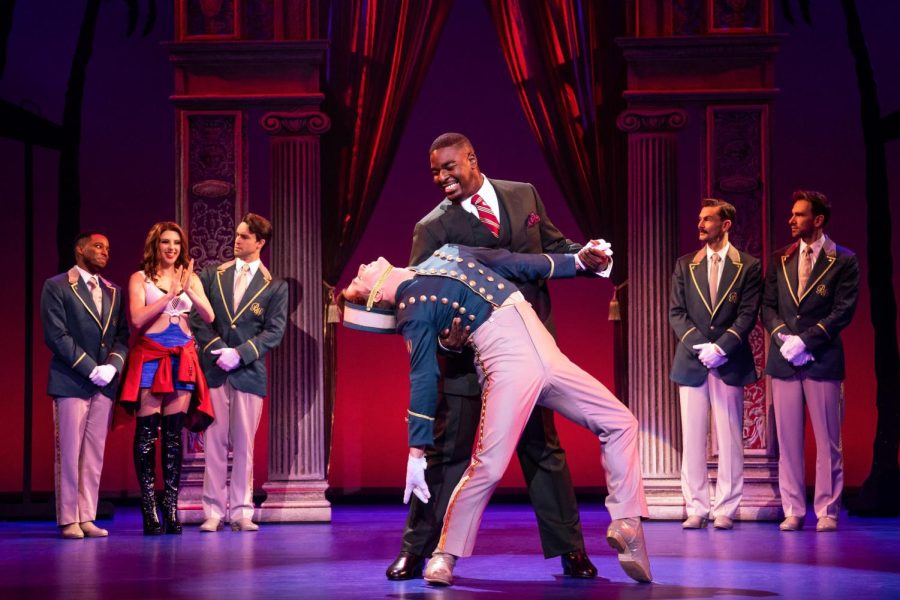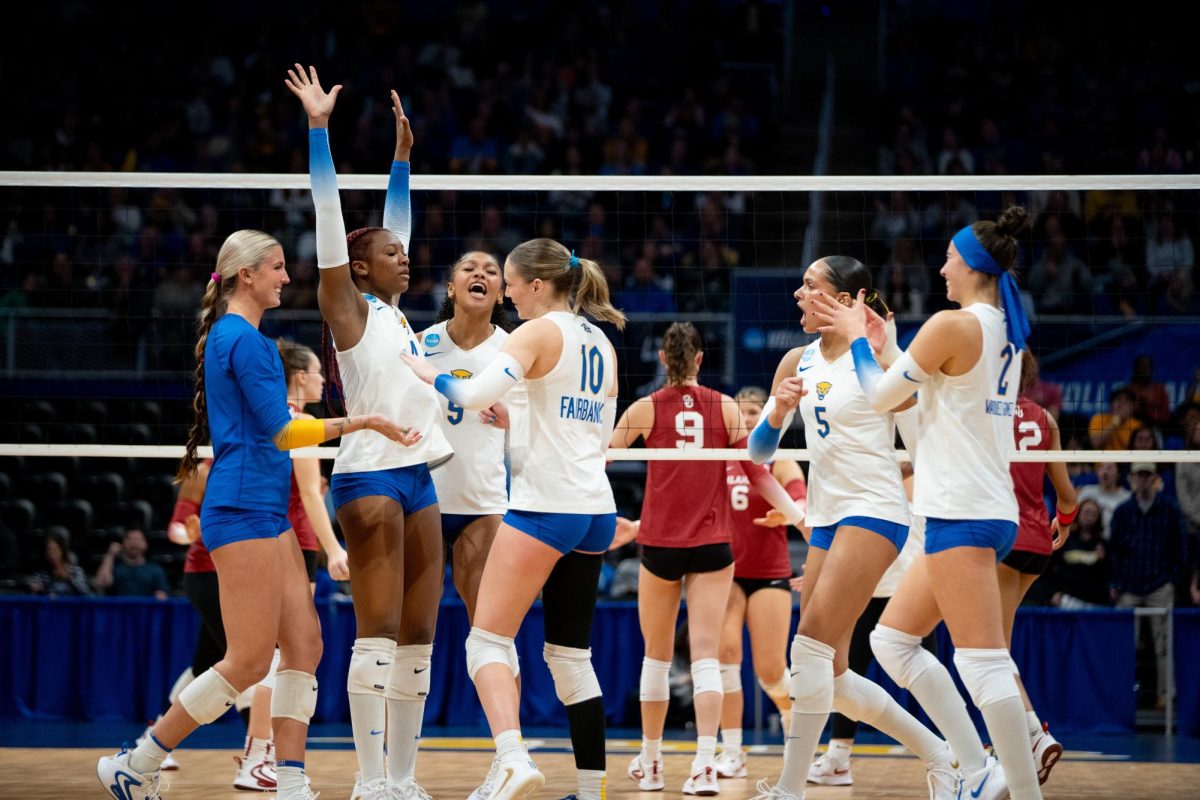‘Pretty Woman: The Musical’ premieres at the Benedum Center with a familiar formula
Image Courtesy of Matthew Murphy for MurphyMade
The company of “Pretty Woman: The Musical” rehearse in the Benedum Center on Oct. 8, 2021.
February 3, 2022
“Pretty Woman” is an iconic romantic comedy, the cautionary tale turned love story recently took to the theater stage in a fun new musical adaptation that skims over problematic themes.
The Pittsburgh Cultural Trust brought “Pretty Woman: The Musical” to the Benedum Center from Feb. 1 to 6. Based on the hit 1990 Hollywood romance movie, the musical adaptation at Benedum Theater followed the same plot as the screenplay.
The film is set in Los Angeles and follows the story of prostitute Vivian Ward (Julia Roberts) who is paid to spend the week with wealthy businessman Edward Lewis (Richard Gere).
The theater adaptation stars Tony Award nominee Adam Pascal as Edward and Olivia Valli as Vivian. “Pretty Woman: The Musical” features an incredibly talented cast that uplifted the audience. Set in 1980s Hollywood, the actors dressed in colorful ‘80s attire and actively worked to engage with their audience through dialogue, direct jokes and call-outs.
While the show was enjoyable to watch and the cast was extremely talented, the general plot of the musical is still largely questionable. The musical adaptation gives more agency to Vivian’s character but Edward still remains an enigma to the audience.
The musical adaptation follows the original dialogue of the film almost verbatim, and it still glosses over some difficult subjects. It stigmatizes sex workers and paints Vivian as a damsel in distress who needs saved. Edward’s treatment of Vivian is almost exactly the same as the film — he’s controlling and often tells Vivian what to do.
With a colorful Hollywood-themed set, the musical showcased bright strobe lights and colorful ‘80s streetwear to embody the setting of Beverly Hills. The opening number “Welcome to Hollywood,” led by characters the Happy Man (Jonathan Ritter) and Kit De Luca (Jessica Crouch), was extremely fun and uplifting that displays a talented cast of characters.

Originally a minor character in the screenplay, the musical revamped Kit as a strong rock singer. Crouch, who played Kit, opened the show by demonstrating her absolute powerhouse of a voice.
The music of the adaptation was incredibly fun, featuring synths, guitars and electronic drums that highlighted the ‘80s rock-pop theme. The opening number included neon lights, ‘80s music, rock dancing and singing for a memorable first number “Welcome to Hollywood.”
Though the musical closely followed the original screenplay, it made a few notable modifications — particularly the use of a narrator and bellhop onstage to supply comedic bits.
The character of “Happy Man,” played by understudy Ritter, narrated the performance through encouraging and upbeat songs. Ritter was hilarious, supplying comedic relief through his short bits and interactions with the bellhop character of Giulio, played by Michael Dalke. The two actors truly embodied the quirks of their character, making audience members cackle at their short but memorable interactions.
There are also significant modifications that add more dimension to the character of Vivian. Though she still largely plays a damsel in distress, there are a few added changes to the musical giving her far more freedom and agency over her actions.
With musicals, there is a certain song sung by a female protagonist called the “I Want” song. “Pretty Woman: The Musical” gives Vivian a few “I Want” songs, effectively giving her more agency than within the original film concept. Valli paid an excellent tribute to the original character of Vivian through these songs and by emphasizing her character’s quirky behavior and awkwardness.
Valli clearly modeled her acting off of the film, but gave Vivian more personality. Valli’s physical acting was hilarious, her large movements and exaggerated facial expressions gave more dimension to the character. Through physical comedic bits such as her absurd dancing and obnoxious laughter, Valli made the growth of her character a seamless transition from naivety to sophistication.
A major change that I personally enjoyed was Vivian’s confrontation with Philip. Philip Stuckey, played by CMU graduate Matthew Stocke, plays Edward’s greedy lawyer. After Philip loses a business deal, he blames Vivian and attempts to attack her.
In the original screenplay, Vivian is attacked and saved by Edward who tends to her wounds, which is by far my least favorite part of the film. However, in the musical, Vivian punches Philip herself and Edward promptly fires him. I liked that she wasn’t the damsel in distress, even if the musical still had some shortcomings.
The musical adaptation offers great messages through the lyrics. In “I Can’t Go Back” Vivian sings about how she can’t go back to her life as a prostitute. In one line she sings — “You make me happy, you know just what to say, but I ain’t Cinderella, who’d wanna be anyway?”
But despite the thematic inconsistency throughout, there’s a lot to love. The ending of the musical even pokes fun at the knight in shining armor troupe — and in a romantic and corny interaction between Edward and Vivian, Edward, who is terrified of heights, climbs a fire escape to see her.



